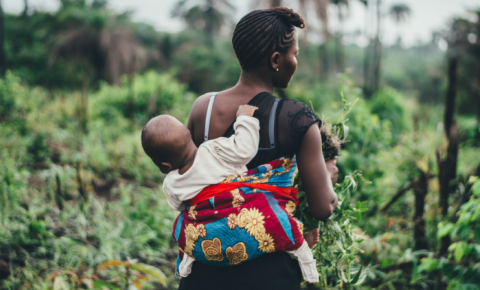Helping Mothers Survive Bleeding After Birth Project
What is bleeding after birth?
Postpartum haemorrhage, or PPH, is heavy blood loss after a baby is born (more than 500 ml or 1000 ml). Every day approximately 830 women die from complications
of pregnancy and childbirth and PPH is the leading cause. The majority of these deaths are preventable.
‘Helping Mother’s Survive Bleeding After Birth’ is a training programme designed to raise the skill level of health care professionals to prevent and treat PPH. One essential intervention to reduce this number, and the scores of women that live with short and long-term consequences as a result of PPH, is a commitment towards training and equipping healthcare professionals who serve women during delivery.
Duration: 2014-2018
Funded by the Laerdal Foundation
Project contact:
Jessica Morris, Project Manager
What we do
FIGO has supported capacity building and skills improvement for healthcare professionals in many areas over the years.
FIGO works in partnership with the International Confederation of Midwives (ICM) to build the capacity of obstetricians and midwives to manage PPH. Working with in-country Investigators and project staff in two FIGO member societies, Uganda (Association of Obstetricians and Gynaecologists of Uganda) and Tanzania (Association of Gynaecologists and Obstetricians of Tanzania), we measured the impact of the training to see if it led to improved outcomes for women who suffered from PPH.
We also collected data in the facilities to assess availability of drugs and supplies, assessment of the training, and other information about prevention and management of PPH.
Additionally, FIGO hoped to strengthen collaboration between obstetricians and midwives through our partnership with ICM, and through establishing project units in both countries, which combined members of the obstetrics and genecology society, with the national midwifery society.
We believe that health providers working together is the best way to increase effectiveness in health facilities and improve outcomes for women.
Key findings
Our findings are soon to be published in full, including the following results:
- Data was collected from 104 hospitals and health centres in Tanzania and Uganda
- Knowledge and skills of staff increased after the training program in Tanzania
- The reported numbers of women having a severe complication was lower than international estimates for both countries
- The training reduced haemorrhage-related near-miss among all women who suffered haemorrhage in Tanzania, confirming the potential impact of the training
Project publications
- Evaluating the effect of the Helping Mothers Survive Bleeding after Birth (HMS BAB) training in Tanzania and Uganda: study protocol for a randomised controlled trial
- Effect of the competency-based Helping Mothers Survive Bleeding after Birth (HMS BAB) training on maternal morbidity: A cluster-randomized trial in 20 districts in Tanzania
- Disentangling the contributions of maternal and fetal factors to estimate stillbirth risks for intrapartum adverse events in Tanzania and Uganda. Hirose A1, Alwy F1,2,3, Atuhairwe S4,5, Morris JL6, Pembe AB2,3, Kaharuza F4,7, Marrone G1, Hanson C1,8. Int J Gynaecol Obstet. 2018 Oct 5. doi: 10.1002/ijgo.12689
The impact of the project
Some of the project staff explain the difference the project has made to women and healthcare professionals.
“Following the training, I can now confidently perform manual removal of placenta and resuscitation of women admitted with retained placenta”
Trained health provider at Mbale Hospital, Uganda
“The midwife could afford a smile after saving a woman who had PPH due to retained placenta”
Project Coordinator while on a monitoring visit at Atutur Hospital, Uganda
“We now know how to manage patients with PPH and as such our referrals have reduced”
Health provider from a hospital in Central Uganda
Every woman's right: a safe delivery
Although great strides have been taken to decrease the maternal mortality ratio, women across the globe are still dying as a result of complications during pregnancy and childbirth.
It's more important than ever to continue to work towards making childbirth safe for every woman — no matter what country she lives in, or what her socioeconomic status is.
